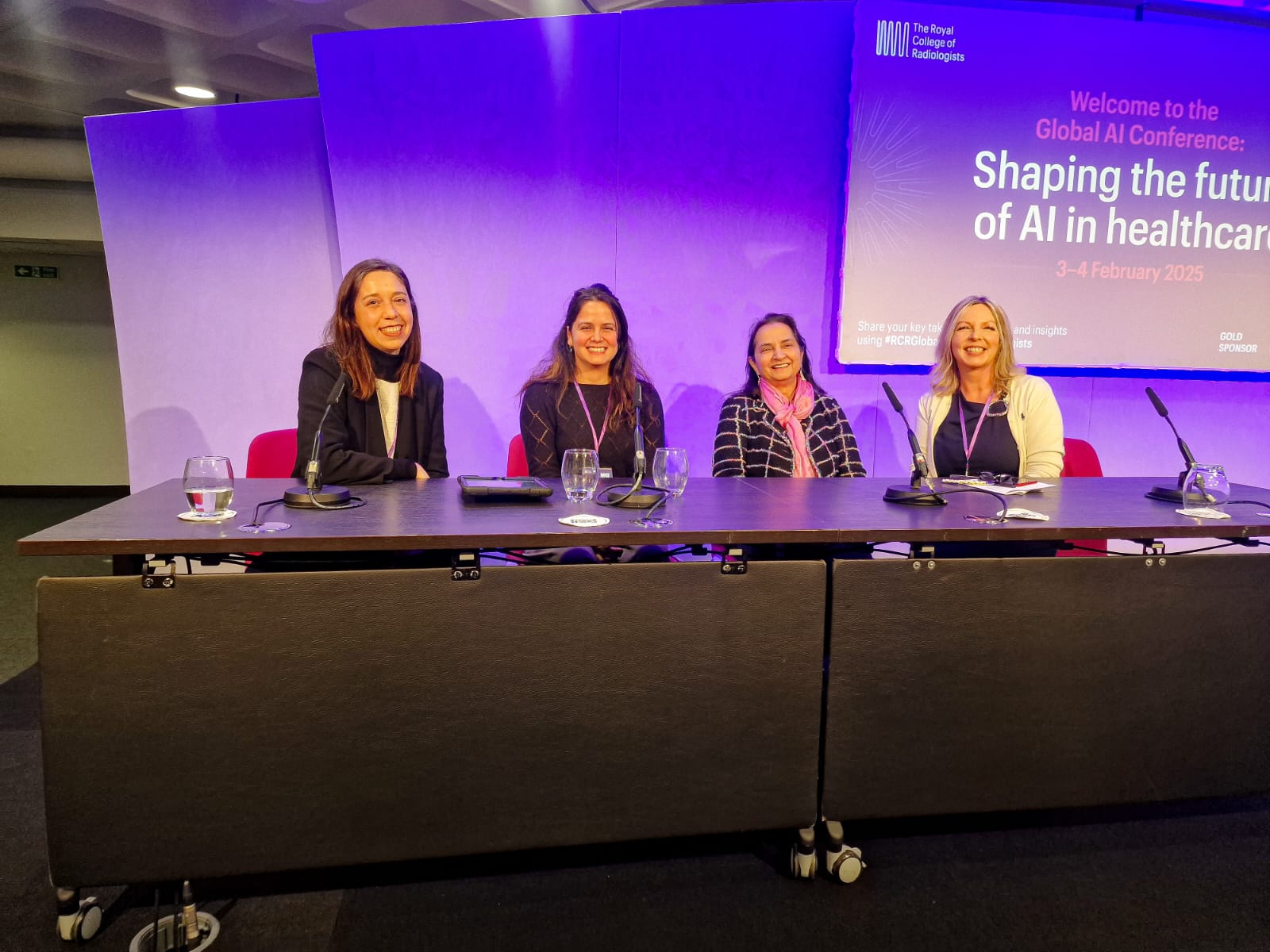
The Royal College of Radiologists Global AI Conference 2025 has come to an end, with speakers sharing their advice for implementing technology and the future of regulation.
Sessions at theRCR Global AI Conference: Shaping the future of AI in healthcare covered education and research in AI imaging, leadership and the patient perspective, governance and regulation, implementation in practice, and case studies of AI projects already being implemented.
Held at the Queen Elizbeth II conference centre in Westminster, London, from 3-4 February, the event covered the whole spectrum of AI implementation, from platform developers, to healthcare organisation representatives, officials from NHS England, to clinical radiologists and radiographers.
Problems at scale
Common themes that emerged across sessions emphasised that AI was not a “silver bullet” or a “magic wand” that would fix the multitude of problems facing the UK healthcare system – but that if implemented properly at scale, it can help to ease challenges pervading the NHS.
According to Leon Doorn, independent medical device quality, regulatory and information security consultant at Qair.io, AI regulation is at a crossroads, with institutions across the world fighting to catch up to advancements in policy while maintaining trust, safety and effectiveness.
As these attempts accelerate, it would fall on clinicians and healthcare organisations to ensure they were AI literate, even as pressures increased.
Cross-compatibility
Another common theme included the need to “bridge, not divide,” across hospitals and healthcare companies. One of the primary benefits of AI systems, explained Visiting Professor at Oxford, Manjit Dosanjh, is its ability to provide system-wide benefits, increased connectivity, and joined-together thinking.
If the UK can work at this more national level, despite the limitations of existing hardware and dated information technology infrastructure, AI will become more robust and effective.
That still meant, however, running up against significant issues facing usage – for example the problem of post-market surveillance.
How can hospitals prove AI effectiveness, for example in lung cancer screening, if AI predicts lung cancer potentially years into the future? Tracking that kind of patient data runs into issues of patient safety and privacy issues – but that doesn’t mean we shouldn’t try, argued speakers at the Training in AI session.
'How can we shape the NHS moving forward?'
Tom Welton, president of the SoR, said: “I’m really glad we’re getting away from the ‘robots and computers’ ethos, towards how it integrates into healthcare. How can we shape what the NHS will be moving forward? Knowing that AI provides that real opportunity to achieve what we need to achieve – less people on waiting lists, reaching more people with better care – proves we’re on the cusp of something here.
“One of the sessions, run by Tracy O’Regan [professional officer for clinical imaging at the SoR] focused on healthcare inequalities across the globe, and the stark concerns around AI and putting that into context. We need to be aware of how digital technologies can affect different backgrounds with very different levels of access internationally, and that really stuck out with me today.
“It’s been a positive event, lots of people around, lots of radiologists, clinicians and chief operating officers who are looking towards AI diagnostics and therapeutics to work on change and improvement.”
Dr Tracy O'Regan added: “One of the main things that’s coming through is collaboration and building that. We’ve moved on from it being theoretical, and not something achievable, to something that’s now pragmatic. How do we implement things? How do we ensure it’s implemented fairly? What’s the learning that’s needed? Where’s the funding? Where’s the research?
“It’s great to see the number of radiographers and sonographers who were here and presenting. I chaired the session on global healthcare inequalities, and it’s been great to see the power of the organising committee and AI to raise that and aim to do something about it.”
Find out more information about the RCR Global AI conference online here.
(Image: (Left to right) Professor Ana Luisa Neves (Clinical Senior Lecturer, Imperial College London), Ms. Elenora Harwich (Senior Director, Newmarket Strategy), Professor Manjit Dosanj and Dr. Tracy O'Regan, by Tom Welton)
